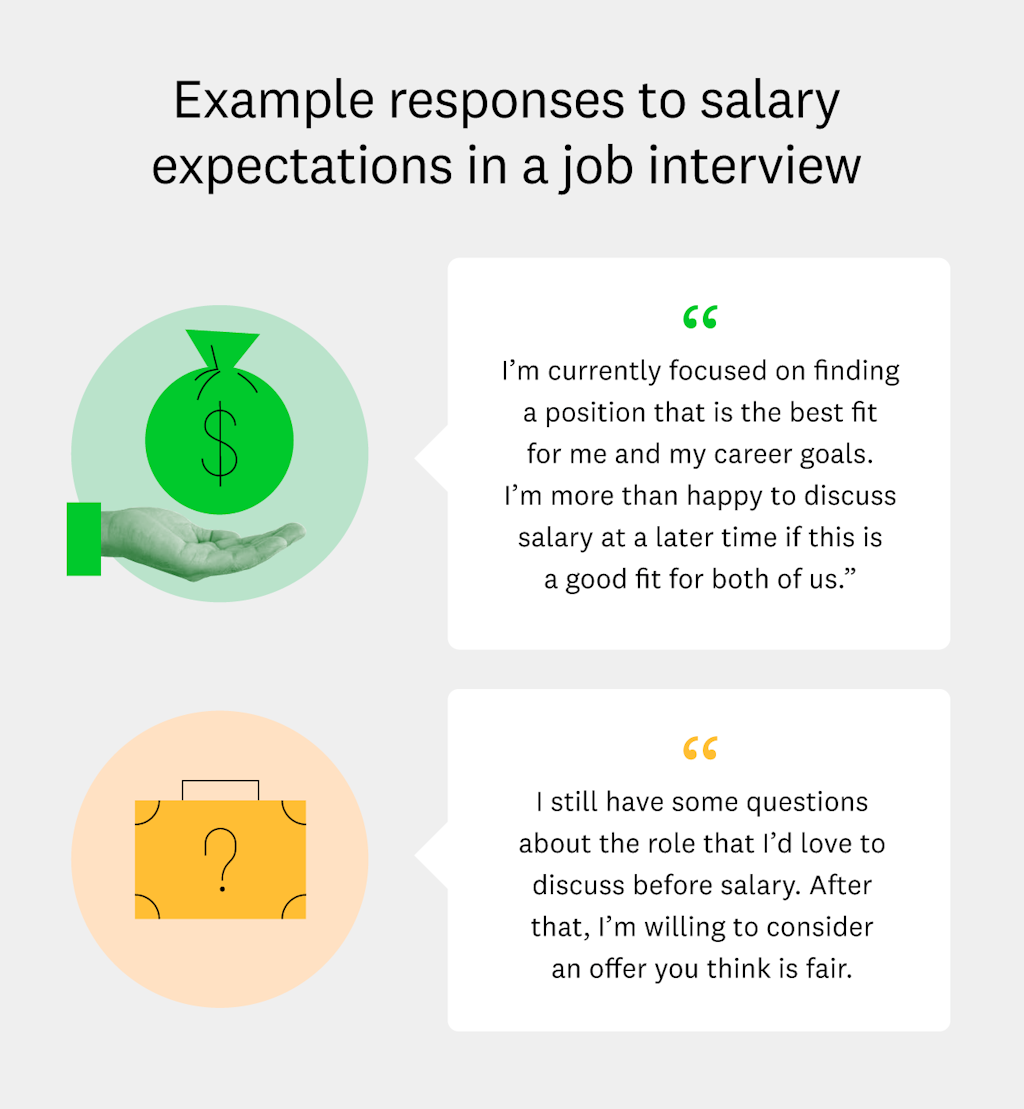when is the best time to ask about salary in a job interview

The best time to ask about salary is typically at the end of the first interview or during a second interview. Ensure the company has expressed interest before discussing salary.
Navigating the timing of salary discussions during job interviews requires a strategic approach. Candidates often wonder how and when to approach this crucial topic without offending potential employers or jeopardizing their chances. Understanding the subtleties of interview etiquette is essential.
The initial interview focuses on assessing fit and expertise, leaving financial topics for later stages. By patiently waiting for the employer to show interest, applicants demonstrate professionalism and a focus on mutual benefit. Once there’s a clear indication of mutual intent to proceed, it is appropriate to inquire about compensation. Raising the question too early might suggest that your interest lies more with the paycheck than the position itself, while waiting too long could mean wasting time on a job that doesn’t meet your financial requirements. Balance and timing are the keys to effectively introduce salary into the conversation.

Credit: www.macslist.org
Importance Of Timing
The ‘Importance of Timing’ in broaching the subject of salary during a job interview cannot be overstated. Discussing remuneration is a delicate dance. It’s about striking a balance. You don’t want to seem too eager. Yet, transparency ensures neither party wastes their time.
At The Beginning Of The Interview
Addressing salary at the start helps set clear expectations.
- Shows confidence and directness.
- Helps gauge if the salary aligns with your needs.
- Focus on job fit and description afterward.
Tread lightly, as it might seem too forward for some employers.
At The End Of The Interview
Waiting until the end reflects patience and respect for the interview process.
- Ensures the employer is aware of your skills and value.
- Reduces risk of premature dismissal.
- Allows for a more informed salary discussion.
However, postponing the topic might lead to uncertainty on both sides.

Credit: www.theforage.com
Considerations
Understanding when to discuss salary in an interview can be tricky. Here are some key things to consider to pinpoint the perfect moment for that conversation.
Company Culture And Norms
Research the company culture before the interview. Look for clues about their approach to transparency and compensation. Some companies are open about salaries early in the process. Others prefer to wait until they offer a job. Company websites and social media may hint at when they expect the topic to come up. Employee reviews on sites like Glassdoor can also provide insight.
Nature Of The Job Role
Different job roles can have varying salary discussion timings. For instance, sales positions may address compensation sooner due to the structure of commissions and bonuses. Technical roles might delve deeper into skills and benefits before salary. Know what’s typical for your field. Professional networks and industry forums could be useful resources to understand the norms.
Strategies For Asking
Navigating a job interview requires skill and tact, particularly when it comes to salary discussions. Asking about compensation can be tricky, but with the right approach, you can broach the topic confidently. Use these strategies to inquire about salary without jeopardizing your job prospects.
Tactful Inquiry
Wait for the right moment to ask about salary. This is usually after the interviewer has outlined the job role. Express genuine interest in the position first; let salary come afterward. Aim to be polite and professional, showing that the job’s responsibilities are your main concern.
Try phrasing your question to show awareness of the company’s needs:
- “Could you provide a range for the expected salary for this role, based on the responsibilities we’ve discussed?”
Setting Realistic Expectations
Research average salaries for the position in question beforehand. Use sites like Glassdoor or Payscale to gather this information. Mentioning your findings can help set a foundation for the discussion. Remember to consider your experience level and the location of the job, as these factors influence salary.
Consider this approach:
- “Based on my research, positions like this one in our area typically offer a salary range of X to Y. Does that align with your company’s compensation structure?”
Non-monetary Aspects
Talking about salary during a job interview requires timing. Equally essential are non-monetary aspects often overlooked by candidates.
Benefits And Perks Discussion
Benefits and perks matter as much as a paycheck. Find out what’s on offer, so negotiate knowledgeably.
- Health insurance: Understand the coverage options.
- Retirement plans: Look into company contributions.
- Flexible schedules: Ask about work-life balance.
- Paid leave: Consider vacation and sick days.
Perks can enhance your quality of life. They might include gym memberships, free meals, or travel discounts. Weigh these factors just as carefully as the offered salary.
Career Development Opportunities
Long-term career paths are crucial. Seek clarity on how the company invests in employee growth.
| Opportunity Type | Details |
|---|---|
| Training | Does the company offer professional courses or certifications? |
| Mentorship | Look for mentorship programs that can guid your career path. |
| Promotions | Understanding the promotion structure can give insights into growth potential. |
Engage in discussions about these opportunities. This shows proactivity and a long-term interest in the role.
Handling Salary Negotiations
Navigating the waters of salary negotiations in a job interview requires finesse and preparation. Understanding the ideal moment to discuss compensation ensures a smooth conversation with potential employers. In this guide, we dive into handling salary negotiations effectively.
Preparing For Counteroffers
Anticipate the back-and-forth that accompanies any salary discussion. Being ready with well-researched information positions you as a knowledgeable candidate. Research typical salary ranges for the role and consider:
- Your experience and skills
- The industry standard
- The location of the job
With this data, you can formulate a reasonable counteroffer if the initial salary doesn’t meet expectations. Always present counteroffers with confidence and be prepared to explain why you deserve the proposed amount.
Seeking Fair Compensation
Fair compensation is not just a number—it’s a reflection of your value to the company. Approach the discussion with:
- Clarity on your minimum acceptable salary
- Evidence of your value-add to the organization
- Understanding of benefits and perks that may supplement your salary
Negotiate with the full package in mind, including health benefits, retirement contributions, and other perks. Remember, it’s not just about the salary; it’s about the overall value the company offers. Your goal is securing an offer that reflects your worth and supports your career growth.

Credit: www.creditkarma.com
Frequently Asked Questions For When Is The Best Time To Ask About Salary In A Job Interview
How Do You Politely Ask For Salary In An Interview?
Could you provide details on the salary range for this position?
When Should You Ask For Salary In Interview?
Ask about salary after the interviewer introduces the topic or during a second interview. Avoid discussing pay early in the first interview; wait until the employer shows interest.
Is It Okay To Ask Salary Range Before Interview?
Yes, it’s acceptable to inquire about the salary range before an interview to ensure the position aligns with your compensation expectations.
How Do I Ask For A Higher Starting Salary?
Research market salaries for your role, experience, and location. Prepare a justification based on your skills and achievements. During negotiations, be confident and articulate your request for a higher salary. Be ready to discuss and compromise if necessary.
Conclusion
Navigating the timing of salary discussions requires tact and strategy. As we’ve explored, situational awareness is key, favouring the post-interview phase for this conversation. Ensure your value is clear before initiating the dialogue, aiming for a transparent and professional exchange.
Remember, timing can impact not only the offer but also the employer’s perception of you. Choose wisely to secure the compensation you deserve.


Ricardo Lewis
sujit novel